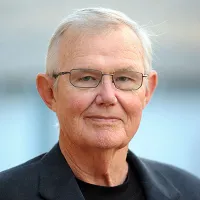Arts & Entertainment
Poet Jericho Brown Tells His Truth, Especially During a Difficult Year

By Will Stribling
Mississippi Today
There isn’t necessarily a bad time to win a Pulitzer Prize, but the middle of a global pandemic certainly isn’t ideal.
Jericho Brown lived this reality in May 2020. He had been on tour for almost a year when he came home to Georgia in March as COVID-19 swept across the U.S. At first, locked up in his home, he had been secretly glad to have the break. But winning the world’s top prize for poetry made that feeling a little more difficult.
“I was like, ‘Where is everybody? I want to have a party!’” he said.
Brown, the 45-year-old Louisiana native who won the 2020 Pulitzer Prize for Poetry for his collection “The Tradition,” will be a featured guest at the Mississippi Book Festival on Aug. 21. Ahead of his visit to the state, Brown spoke with Mississippi Today about his life and the weight of his recent success.
The pandemic was just one disruption from the American norm when Brown won the Pulitzer last summer. After the police killings of George Floyd, Breonna Taylor and Ahmaud Arbery, tens of millions marched the streets the next few weeks in what would become one of the nation’s most profound reckonings on racism.
Brown’s work met that moment perfectly. The Pulitzer Board heralded “The Tradition” as “a collection of masterful lyrics that combine delicacy with historical urgency in their loving evocation of bodies vulnerable to hostility and violence.” As a gay, HIV-positive Black man in the Deep South, Brown knows these kinds of bodies intimately.
“I sort of knew my entire life that folks would be upset about the fact of my existence,” Brown said.
Asking people hard questions, to Brown, is the job of a poet. In an environment where you can’t state basic facts about institutional racism in America without upsetting people, Brown said he can’t allow himself to worry about how people will perceive any particular poem.
“My ability to do my work means that I have to tell the truth, and the fact that people are turned off by that is going to have to be their business because it can’t be mine,” Brown said.
Still, Brown doesn’t think of himself as bravely taking on topics others are too scared of or would like to ignore. Instead, he thinks it’s the reality that some people just run from the truth.
“Jesus is a really good example. There’s absolutely no way you would think that people would really enjoy hanging out with Jesus in 21st century America,” Brown said. “He was anti-capitalist, quite interested in the rights of women and spent a good deal of time with sex workers.”
Brown has been inspired by poetry since he was a little boy. Drawn by poems because they were short and approachable, he spent a lot of time reading them at his local library in Shreveport, where he and his sister would spend much of their time because their mother couldn’t afford child care.
Poems were all around Brown as a child, and he attributes much of his early appreciation for poetry to Black church tradition. The church he attended was a place where you could hear a child read Psalm 23 before another recited Maya Angelou’s “Still I Rise.”
“It put me in contact with the fact that words can have a powerful effect on emotions,” Brown said. “That the well said thing could very well lead to shouting and clapping and crying.”
Being in church taught Brown that there was an order to things, but that didn’t mean it had to be predictable or boring. When he was in church, he always knew what would happen, he just didn’t know how it was going to go about.
“You know when it’s time for a song, you know when it’s time for the sermon, you know when it’s time for the offering,” he said. “But you don’t know what it’s going to be like Sunday to Sunday… You want that to be the case in your poems because you want to be in a position where you can surprise yourself.”
That was the case with “The Tradition.” Writing the poems that would become “The Tradition” steered Brown’s life for a few years and became the most important thing to him.
“I became vulnerable to it… And I know that as I was writing the poems, I was moved by them, and I was excited by them,” Brown said.
This article first appeared on Mississippi Today and is republished here under a Creative Commons license.

























